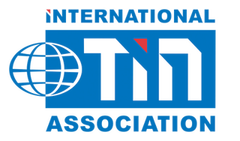
November 2021
Annual Progress Report Metals 2020-2021
Looking back at year 2
An overall evaluation of the Metals Agreement in the second implementation year shows that despite the social and economic challenges posed by COVID-19, the parties to the Metals Agreement continue to strive towards the integration of International Responsible Business Conduct (RBC) in supply chains.
Roadmap: what has (not) been done?
The implementation of International RBC involves actions to be taken, tools and templates to be developed and completed, and reports to be made, in order to monitor and evaluate progress. These activities are set out in a roadmap and can be monitored by parties via a monitoring tool. The roadmap has been updated to show schedule of due diligence activities, outreach goals and proposed projects for the remainder of the Metals Agreement years 3 to 5 (2021-2024).
The Maturity Assessment Tool used to determine companies’ maturity level in the implementation of due diligence was updated, and a session on risk analysis was organised for the companies. In consultation with the parties, a collective action plan template was developed as well. The deadlines of some individual due diligence actions, which are relevant for the collective due diligence activities, were not met for various reasons including COVID-19.
Conducting due diligence in secondary materials supply chains took various forms. The planning and preparations to organise a physical knowledge session on the recycled metals supply chain were halted due to COVID-19 restrictions. The working group on secondary materials supply chains took this opportunity to re-evaluate the focus and goal of the session and decided as a first step, to gain more insight into the risks, challenges, and bottlenecks in the recycling supply chain within the Netherlands and the European Union. A webinar for recycling companies on International RBC and the Metals Agreement was also organised.
Under the theme of collective actions and upscaling, there continues to be a gap between the number of existing companies and the set goal of twenty companies at the end of the second year. Parties received external assistance with outreach and welcomed five new companies to the Metals Agreement. They also identified collective risks to tackle together.
Links to statement of the new companies on their participation in the Metals Agreement
- A&M Recycling B.V| In 2 Waste Solutions
- Gooimeer B.V*
- Krommenhoek Metals B.V
- Nyrstar Netherlands B.V
- Smart-M B.V
*Not published yet
New communication strategies for outreach such as updating the brochure and website, and developing a promotional video are currently being implemented. Like in the first year, it was not possible to organise a physical outreach information and network session for new parties, and the alignment assessment of the Metals Agreement to the Organisation for Cooperation and Economic Development (OECD) Guidelines has not yet been initiated. An internal self-assessment was conducted to determine whether the Metals Agreement is ready to undergo an assessment by the European Commission to be granted recognition as a supply chain due diligence scheme for the European Union Conflict Minerals Regulation. It was concluded that due to other priorities and limited time and resources, this activity will be put on hold for the time being. The Metals Agreement, however, participated in a consultation with the International Zinc Association to provide feedback on their ‘SDG Zinc Sector Roadmap’ that identifies impact opportunities and actions for the global zinc industry to contribute to the United Nations’ Sustainable Development Goals (SDGs).
Jacob Gerkema, CPO Tata Steel Europe
“We are constantly developing and redefining our contribution to a better world. Where – wherever – do we have an impact? And how can we make a difference? In the past year we made great strides with sustainable sourcing. We mapped out the risks in our supply chain better and started to work with objective risk indices on aspects such as child labor, human rights and biodiversity. Purchasing decisions and risk mitigating actions are now becoming surrounded by more certainties and based on clear sustainability criteria that are imperative for our purchasing team. We are constantly fine-tuning this collective, unambiguous purchasing strategy, thereby increasing our positive influence.”

Pauline Neefjes, Sr. Advisor UNICEF Nederland
“The agreement has brought the opportunity to UNICEF to get in touch with a wider range of companies who are linked to the global metals and minerals supply chains. The priority in year 3 is to get the companies around the table to discuss the risks they have identified and to create understanding on the impact on children. We look forward to work with the companies and build a collective plan to mitigate the risks that jeopardize children’s future.”

Kay Nimmo, Head of Sustainability, International Tin Association (ITA)
“We set up the Tin Code to promote continuous improvement and transparency in ESG reporting in the global tin industry. We very much value and believe in driving harmonized standards with other important initiatives in the metals space, and look forward to continuing partnership with Metals Agreement as it develops”.

xxxxxxx
“xxxxxxxx”
